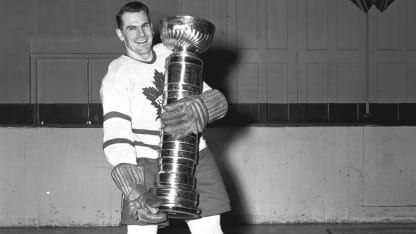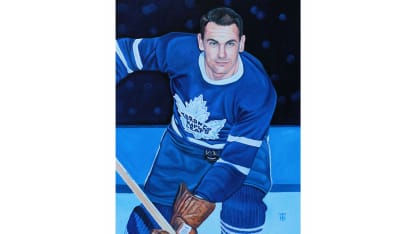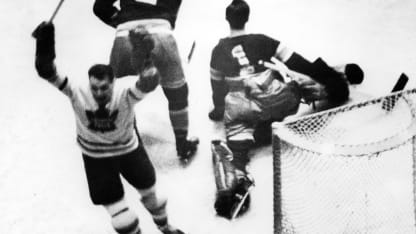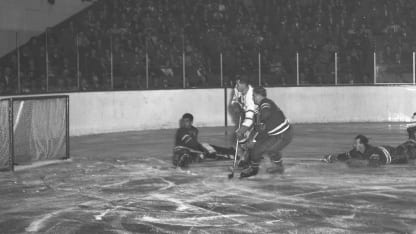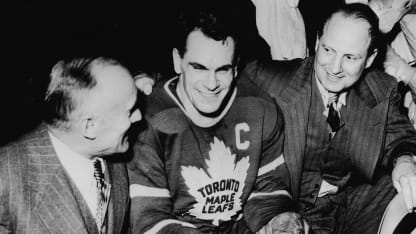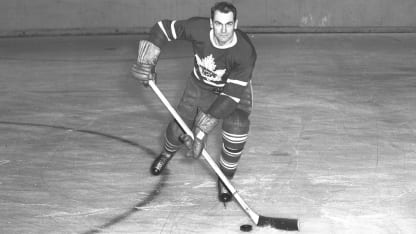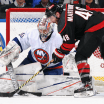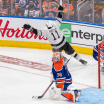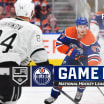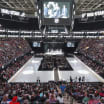Quietly intense and hugely competitive, Apps had already perfected his own, hard-to-defend plays, including speeding down the wing, cutting behind the net and laying a perfect pass in front to a charging linemate.
While he played a gentleman's style, Apps refused to be pushed around. When Boston's Flash Hollett high-sticked Apps, knocking out two teeth, Apps punched him to the ice, one of only three NHL fights he'd have. More frequently, Apps would vent his frustrations with a sanitized form of swearing, as he demonstrated in 1937 when a referee failed to penalize a Red Wings player who had slashed Apps in the head. Apps unleashed a string of, for him, harsh words, consisting of "Jiminy Christmas!" and "By Hum!" - much to his teammates' amusement.
The Leafs named Apps captain for the 1940-41 season and a season later he helped spearhead what remains the most remarkable comeback in Stanley Cup Finals history. Down 3-0 to the Detroit Red Wings, Apps sparked the turnaround in Game 4, scoring the tying goal and setting up the winner, then getting two goals and three assists in 9-3 win in Game 5. Momentum having swung, Toronto rallied to win the Cup and Apps led all postseason scorers with nine assists and 14 points in 13 games.
It was that next season when Apps broke his leg, and a few weeks later the honorable captain made his way into Smythe's office with a $1,000 check, intent on returning part of his $6,000 salary. "Conn, I'm making more than I deserve," he said. A flabbergasted Smythe recalled, "I almost died of heart failure. Of course, I refused his check."
Apps returned from the Army for the 1945-46 season needing to adjust to a faster, more offensive NHL, telling Batten, "I'd hardly been on skates in two years and I had a terrible time settling down." Apps still scored 24 goals, a career high. He'd score 25, then 26 in his final two seasons.
Teamed with Harry Watson and Bill Ezinicki, Apps led the rebuilt Leafs to two consecutive Stanley Cups. In 1947 against the favored Montreal Canadiens, Apps played an inspired Game 4 and scored the winning goal at 16:36 of overtime to put Toronto up 3-1 in games. After the Leafs lost Game 5, Toronto won Game 6 2-1.
